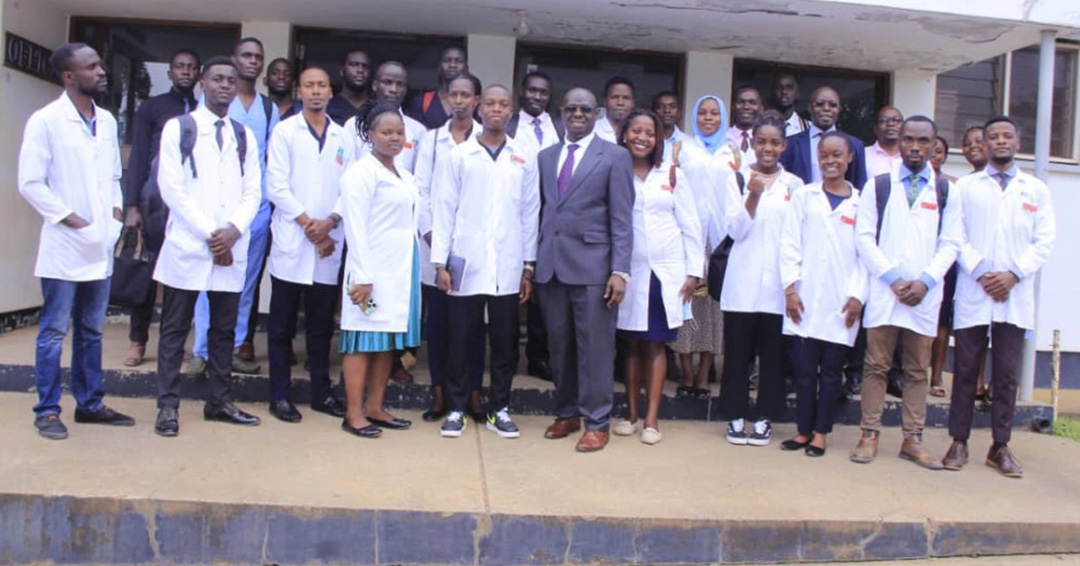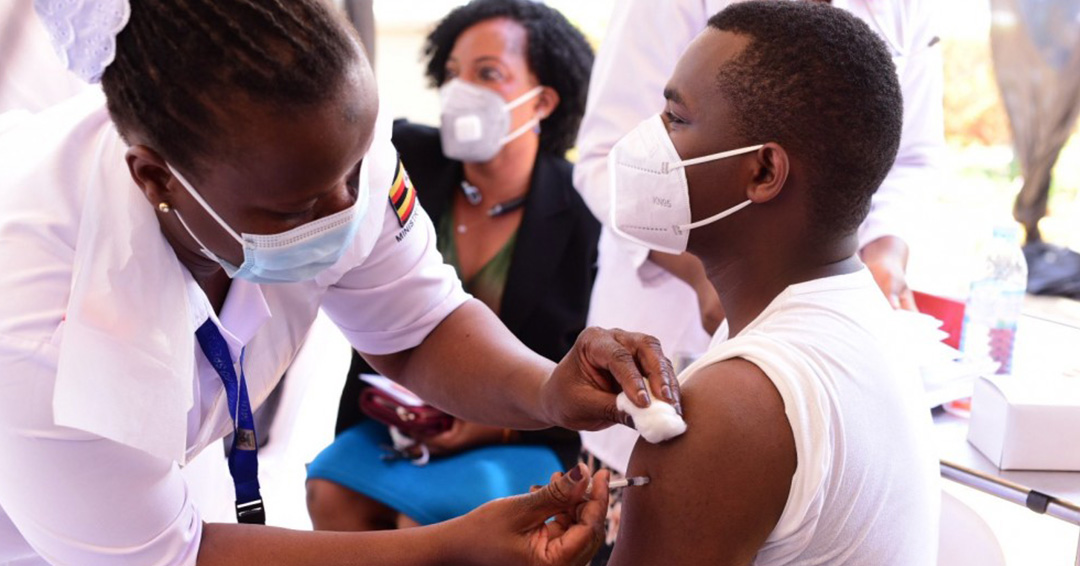
Sep
KIU Teaching Hospital Strengthens Partnership With Kitagata General Hospital
September 5, 2024, 9:40 am
 Administrator
Administrator

By Rogers Wanambwa
KIU, Main Campus - According to health experts, individuals with a severe history of allergic reactions should keep away from the ongoing nationwide COVID-19 vaccination that started last week.�
Uganda has so far acquired 940,000 doses of the AstraZeneca vaccines through the COVAX Facility, a World Health Organisation (WHO) initiative to ensure equal access to vaccines by all countries.�
Last week, on Wednesday 10th March, the first phase of vaccination for frontline health workers kicked off at Mulago National Referral Hospital and Entebbe Regional Hospital.
Dr. Phionah Atuhebwe, the vaccines introduction Medical Officer at the WHO Regional Office for Africa, indicates that persons with allergies to protein are especially at a high risk of developing adverse effects.�
She explains that the protein contents in AstraZeneca vaccines may pose risks of one developing anaphylactic shock, a potentially life-threatening reaction, once administered to them.
Dr. Atuhebwe was replying to journalists regarding concerns of the vaccine during training on COVID-19 vaccine introduction and deployment in Kampala on Thursday 11th March 2021.
"The only people wec��?cre telling not to have the vaccines are people who know that they have a history of allergy. Therec��?cs a protein that has been put in these vaccines to limit those spike proteins. Even when you donc��?ct have the virus, the body will think these are spike proteins coming from the virus and will immediately build up the immunity to be able to fight the virus. So yes, because therec��?cs protein in the contents of the vaccine, wec��?cre telling people who are allergic to protein...not to take the vaccine at least not for now. The highest level of adverse effects is an anaphylactic shock and an anaphylactic shock is an allergic reaction. We do not want to send you to an anaphylactic shock," said Dr. Atuhebwe.�
As it is, Dr. Atuhebwe points out that whereas the vaccine may for now not favour those with severe allergy history, it remains very safe for use to the general populace. She says that findings from areas, where the vaccine has already been administered, indicate that it is safe with high efficacy in preventing severe disease hospitalization and death.
"The findings we have so far are that the COVID-19 vaccines are very safe with high efficacy particularly in preventing severe disease, hospitalisations, and death. When the vaccine works, it is because of the crisis and commotion the pandemic had on our economy and crashed our systems," she explained.
"So the main objective of the vaccine was to prevent severe disease and thus prevent hospitalisation. So wec��?cre trying to prevent people from getting very sick and dying. It was not to prevent infections from spreading from one person to another. It was to maintain our health systems and if our health systems are maintained, we can maintain also our economies,c⬝ she added.�
According to the WHO Country Representative in Uganda, Dr. Yonas Woldemariam, itc��?cs advisable for a person who is allergic to the vaccine not to take the AstraZeneca vaccination. Dr. Woldemariam says there may be a need for an alternative technology or platform to vaccinate such categories of people.
Woldemariam stressed the continuation of Standard Operating Procedures (SOPs) implementation among both individuals who have taken the vaccine jab and those that havenc��?ct to curb the spread of the contagion.
He also notes that the vaccine is safe for expectant mothers as opposed to speculation that it could be a health hazard to them if vaccinated. Dr. Woldemariam adds that although studies are still ongoing, they have only seen its benefit of the vaccine on pregnant women which outweighs their risk of COVID-19 infections.��
However, the AstraZeneca vaccines have been met with some resistance in some countries across the globe over concerns of safety in public health. These include the Austrian, Norwegian, and Swedish authorities, who early this week suspended its administration after a woman reportedly died as a result of severe coagulation disorders, while a 35-year-old woman developed a pulmonary embolism.
Besides, the government of Uganda intends to vaccinate at least 950,000 frontline workers, security personnel, teachers, journalists, and persons with underlying medical conditions.
Kampala International University,
Box 20000, Ggaba Road, Kansanga, Kampala
+256-760 502660
+256-700 100808